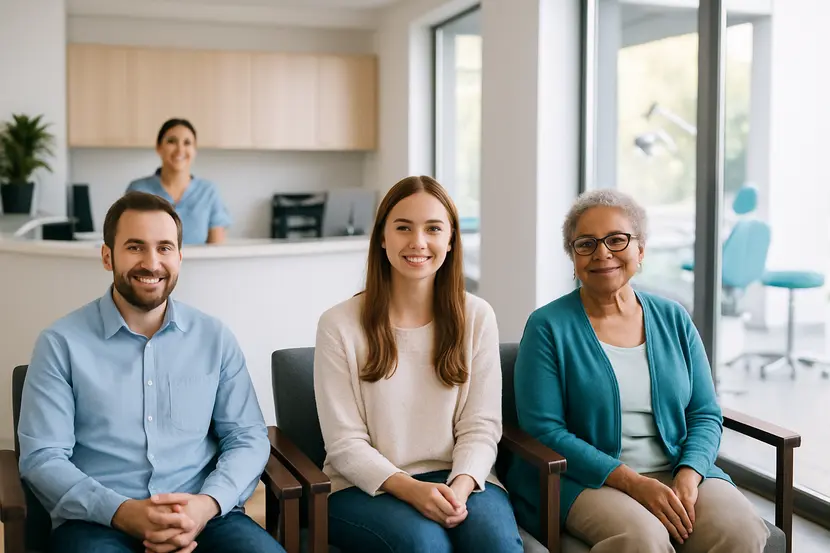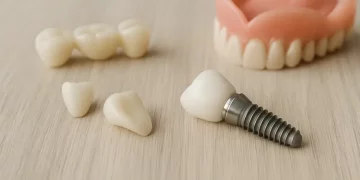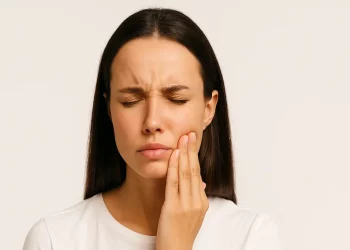Dental Visits play a steady role in everyday oral hygiene, and many people want an easy explanation of how they fit into their lives. Most individuals know that routine dental care matters, yet many feel unsure about what actually happens during these appointments. This simple guide breaks the topic down in a friendly, non-clinical way so anyone can understand the basics without feeling overwhelmed.
Why Dental Visits Matter in a Normal Daily Life
Many people think of Dental Visits as something they schedule only when discomfort appears. In reality, routine dental care supports everyday comfort, confidence, and awareness about oral health. Simple habits at home help a lot, but a visit gives people a chance to understand what their mouth needs at different stages of life.
Some people also look at general insights shared by local professionals, including what a dentist in San Juan Capistrano might say about creating a consistent routine. These insights often help readers see how regular appointments fit into a broader, everyday care pattern.
How Regular Habits Support Everyday Oral Care
Dental Visits give patients a clear view of how their mouth changes over time. Everyone’s habits, lifestyle, and diet affect oral comfort. When readers think about routine dental care, they often want simple clarity rather than complex medical details. A visit usually offers general awareness about areas that need more attention, such as brushing patterns or lifestyle choices.
People also benefit from understanding their own habits. Routine dental care often works best when a person can link their daily routine with occasional checkups. This connection helps individuals stay consistent without needing expert-level knowledge.
What People Usually Experience During a Routine Check
A lot of readers want to know what a typical appointment includes. Dental Visits often follow a predictable flow, which helps reduce uncertainty. Here is a simple outline of what patients usually experience:
- A general conversation
Most appointments begin with a friendly conversation. The dentist or the clinical team may ask how the patient feels, if any discomfort occurred recently, or if any changes in daily habits took place. This supports routine dental care without involving complex instructions.
- A look at oral hygiene patterns
During Dental Visits, the dental team may check how brushing and flossing habits show up in the mouth. This is not a judgment; it is an observation to help people understand how daily habits influence oral comfort.
- A gentle cleaning process
Cleaning helps remove buildup that brushing alone may not address. Many people feel more refreshed afterward, which encourages them to stay consistent with daily care. Routine dental care becomes easier when people feel the difference after a cleaning session.
- General guidance for daily habits
Most patients appreciate simple, non-medical feedback about brushing angles, flossing consistency, or helpful lifestyle adjustments. These tips support routine dental care because they make day-to-day habits smoother and more effective.
How Routine Checkups Reduce Everyday Confusion
A lot of people feel confused about which products to choose or how often to adjust their brushing habits. Dental Visits help simplify these decisions. Instead of experimenting alone, individuals gain a clearer understanding of what fits their needs.
Sometimes readers look at general information offered by community professionals, such as a dentist in San Juan Capistrano, to understand broader patient questions. These insights help them avoid unnecessary confusion without promoting any specific clinic.
Common Questions People Have About Dental Visits
Here are a few everyday questions people ask when thinking about Dental Visits, explained in simple terms:
Do Dental Visits hurt?
Most appointments focus on comfort. A mild sensation may appear during cleaning, but it is usually manageable. The goal is clarity and awareness, not discomfort.
How often should Dental Visits be scheduled?
Most providers recommend regular appointments, though exact frequency varies by individual situations. People often follow a schedule that feels balanced with their daily routine.
Do Dental Visits diagnose diseases?
A dental team observes the mouth and shares general feedback. They guide patients to appropriate next steps if needed. This keeps the process safe, simple, and educational.
Why do some people need more frequent visits?
Lifestyle habits, diet, stress, or genetic factors can influence oral comfort. Routine dental care adjusts to each person’s needs without following a rigid formula.
How Dental Visits Help Build Confidence
Many people feel more confident after Dental Visits because they understand their oral condition better. When someone knows what’s happening in their mouth, daily habits become easier to manage. Routine dental care also helps individuals maintain fresher breath and a more comfortable smile.
Confidence grows when individuals feel informed rather than confused. This sense of clarity supports better long-term habits without needing expert-level knowledge.
Everyday Tips to Support Routine Dental Care
In addition to Dental Visits, people often benefit from simple habits woven into their daily routine:
- Brushing regularly
Most people brush twice each day. The consistency matters more than perfection.
- Flossing gently
Flossing helps reach areas that brushing might miss. A gentle, consistent approach works well for routine dental care.
- Staying hydrated
Water supports mouth comfort and freshness throughout the day.
- Paying attention to changes
If anything feels different, noting it before a visit helps the dental team understand the situation better.
These steps work alongside Dental Visits to keep the routine smooth and comfortable.
Why Understanding Dental Visits Helps Patients Make Better Choices
Knowledge gives people confidence. When individuals understand Dental Visits, they start making choices based on awareness rather than assumptions. This helps reduce anxiety and improves daily habits. People also find it easier to communicate during appointments when they know what to expect.
Readers can explore general dental care information from different regions. When someone searches for broader insights, they may even come across a dentist in San Juan Capistrano offering educational content. This helps them gather information without relying on promotional sources.
When People Seek More Information About Oral Health
People often want accessible, general information about oral care or routine habits. Some readers explore educational websites or browse local resources to understand terminology, visit expectations, or everyday care guidance. These searches help them become more familiar with common oral health concepts without relying on expert-level explanations.
To explore more general dental care information, a neutral resource can be found here:
Learn more about general dental care resources here: https://siladental.com/
This link is provided only for educational reference.
Disclaimer
This article is intended for general informational and educational purposes only. It does not provide medical advice, diagnosis, treatment, or professional recommendations. Readers should always consult a licensed dentist or qualified healthcare provider for personalised guidance regarding oral health, dental procedures, symptoms, or treatment options.
No Professional Advice or Instructions
Nothing in this article should be used to self-diagnose, self-treat, delay professional care, start or stop any treatment, change medications, or make decisions about dental procedures. Every individual’s condition is different, and only a qualified professional can evaluate specific needs.
Procedures & Treatment Awareness Disclaimer
Any dental procedure, cleaning method, treatment, or clinical term mentioned in this article is for general awareness only. These references do not represent medical instructions, recommendations, endorsements, or promotions of any dentist, clinic, procedure, or service. Readers should discuss risks, suitability, and alternatives with a certified dental professional.
Mentions of Cities, Clinics, Websites & Healthcare Providers
Any mention of a city name, location, dentist, clinic, website, or brand is purely contextual and does not imply endorsement, recommendation, ranking, or evaluation. No success rates, guarantees, superiority claims, comparative statements, or unverifiable assertions are made or implied.
Backlink / External Link Disclaimer
Any external link included in this article (including user-provided backlinks) is shared strictly for general informational reference. It is not an endorsement, promotion, verification, or recommendation of any clinic, service, product, practitioner, or external website. WellHealthOrganic.com does not guarantee the accuracy, safety, or reliability of external content.
Medication, Products & Remedy Disclaimer
If this article mentions dental products, cleaning tools, oral hygiene items, or remedies, such mentions do not guarantee safety, effectiveness, outcomes, or suitability. Always consult a licensed dentist, doctor, or pharmacist before using any product or combining medications.
Accuracy & Responsibility Statement
While efforts are made to provide generally reliable information, WellHealthOrganic.com does not guarantee accuracy, completeness, or timeliness. Readers must verify information independently and consult qualified professionals for specific concerns.
Image & Visual Disclaimer
All images used in this article (if any) are illustrative references only. They do not depict real clinics, patients, procedures, or actual scenarios.
Qualification Notice
The authors and WellHealthOrganic.com are not dentists, doctors, or licensed medical professionals.
Liability Limitation
By reading or relying on this article, you agree that all decisions related to your oral health are your personal responsibility. WellHealthOrganic.com and its authors are not liable for any consequences, harm, loss, or damages resulting from the use or misuse of this content. This article does not establish any doctor–patient relationship.
Additional Notice
This article does not promote or endorse any dental clinic, practitioner, brand, or product mentioned directly or indirectly.
Emergency Warning
If you believe you may be experiencing a dental or medical emergency, contact a licensed healthcare provider or your local emergency services immediately.



















